Garmin Fenix 7 Pro hands-on — A new heart rate sensor and a built-in flashlight, but is it worth the upgrade?
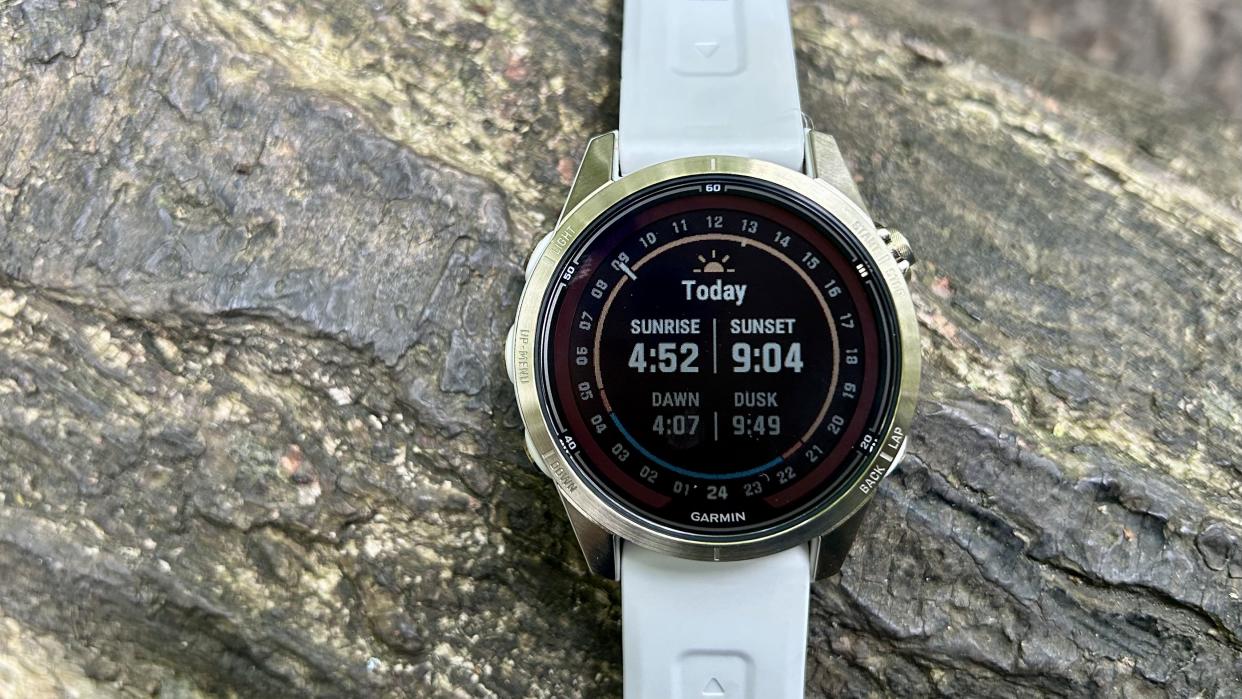
There’s a Garmin watch for everyone, and the Fenix 7 is designed for the person you’ve always wanted to be — someone who runs their commute, holidays in Yosemite, and loves nothing more than stand-up paddleboarding after a stressful day of meetings. It’s been 16 months since Garmin launched its ultimate adventure watch and now the Fenix 7 series just got an upgrade with the Garmin Fenix 7 Pro.
The new watch has a built-in flashlight and a new heart rate sensor, but how does it compare to the Garmin Fenix 7, and some of the other best Garmin watches on the market? I’ve been testing the Fenix 7 Pro for a week to find out more. Of course, a week isn’t long enough to make real conclusions (some of the newer features need two weeks of data) but read my Garmin Fenix 7 Pro hands-on review below to find out more.
Garmin Fenix 7 Pro hands-on: Price and availability
The Garmin Fenix 7 Pro series was released on May 31, 2023. There are three different-sized watches in the range — the Fenix 7S Pro (42mm), the Fenix 7 Pro (47mm), and the Fenix 7X Pro (51mm). The main difference between each model is the size of the screen, and the battery life, but more on that below.
All of the watches in the Fenix 7 Pro line have solar charging capabilities — unlike the Fenix 7, there’s no standard model in the Pro line. The cheapest watch in the Fenix 7 Pro line starts at $799/£749.
If you’re confused by the ‘series’ of watches, here’s all the pricing information:
If you’re looking for a bargain, it’s likely that the original Fenix 7 line will be discounted now that the newer watches have been released.
Garmin Fenix 7 Pro hands-on: What’s new?
Built-in LED flashlight
New heart rate sensor
New advanced training metrics: endurance score and hill score (these will be available on older Fenix 7 models soon)
Up ahead feature — runners can see running points of interest on a map
Weather map overlays
Additional preloaded activity settings
So what’s new? When comparing the Fenix 7 Pro line to the Fenix 7, there are a few notable differences, the main being a new heart rate sensor.
The next-generation sensor has “more spatially diverse optical sensors,” according to Garmin. This means it offers enhanced performance tracking for a variety of different sports modes. I’ve tested the heart rate sensor with a Garmin chest strap heart rate monitor, and found it pretty spot on; I’m yet to test it in the gym, pool, or on the bike, however.
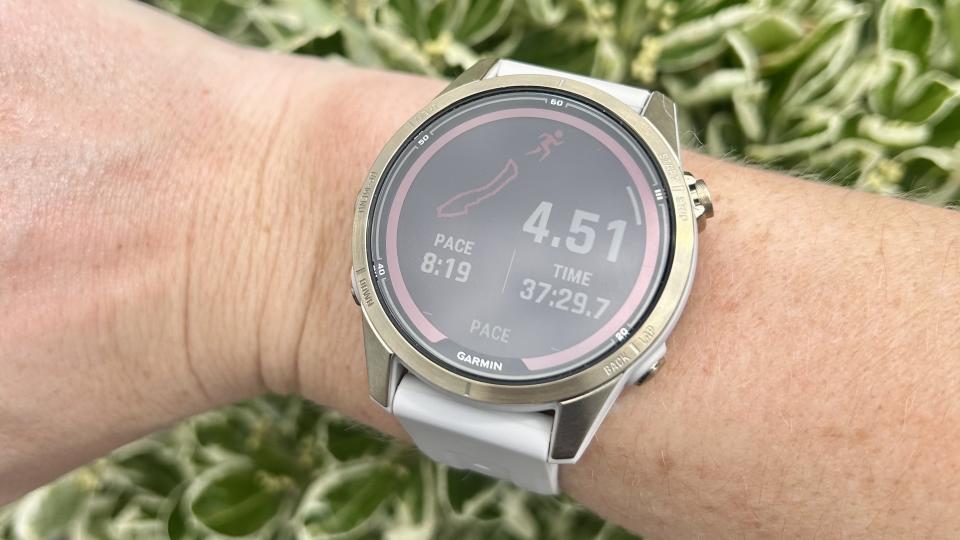
There’s also a built-in flashlight on all the watches in the Fenix 7 Pro range. The flashlight was first introduced on the Fenix 7X last January and can be used in situations where you might use your phone’s flashlight, but can also be used in certain sports modes, as the flashlight can blink or pulse on a bike ride. There is also a running-specific cadence visibility flashlight, where the watch will flash white as your wrist goes forward, and red as your arm moves back, in order to help keep you safe and seen.
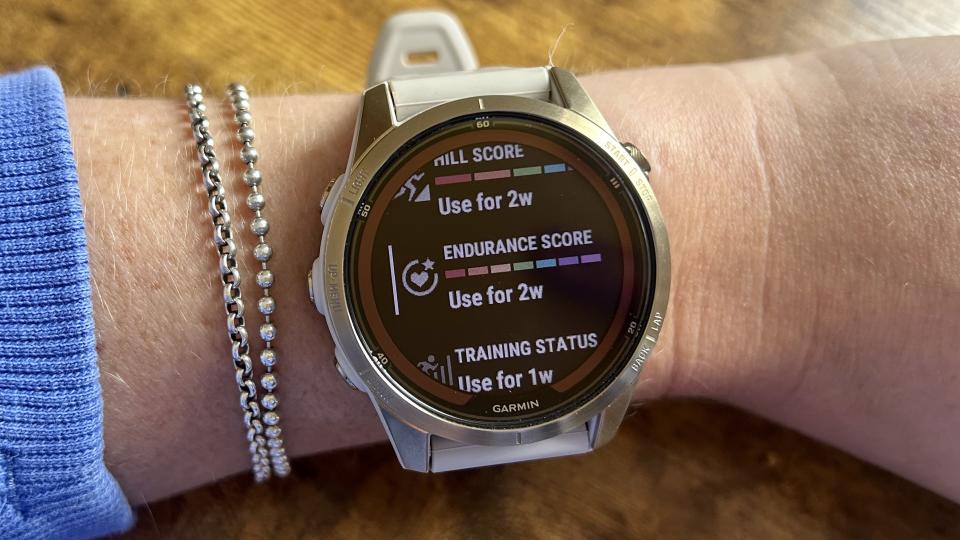
From a fitness perspective, Garmin has added some new activity profiles, including whitewater rafting, motocross, and overlanding.
There are two new running features — hill score, which shows you from your wrist how easy it is to run uphill. Garmin does this by measuring your running strength on steep elevations, and endurance on long ascents, as well as progress over time, based on your VO2 max, and training history.
There’s also a new endurance score, which is a measure of how easy it is for you to sustain prolonged efforts, looking at data like VO2 max, and your short and long-term training loads. These new training features will also be available on older Fenix 7 and Epix 2 models at a later date.
Garmin has also tweaked the mapping capabilities on the Fenix 7 Pro line, making it easier to view upcoming weather conditions.
Garmin Fenix 7 Pro hands-on: Performance
I’ve had the Garmin Fenix 7 Pro on my wrist for a week, and have been impressed. This is the same Fenix 7 we know and love, with a few tweaks. However, would a flashlight and a new heart rate sensor be enough to make me upgrade if I’d recently bought a Fenix 7 or a Garmin Forerunner 965? Definitely not — you can buy a pocket flashlight for a lot less.
That said, the flashlight is a feature I’ve been impressed with. I loved the idea of it when it was released with the Garmin Fenix 7X last year, but not enough to strap a 51mm watch to my wrist (I struggle with the heft of the Apple Watch Ultra, and couldn’t comfortably wear anything bigger). As a female runner who spends a lot of time running alone, little extras like the flashlight can make me feel safer in the winter months.
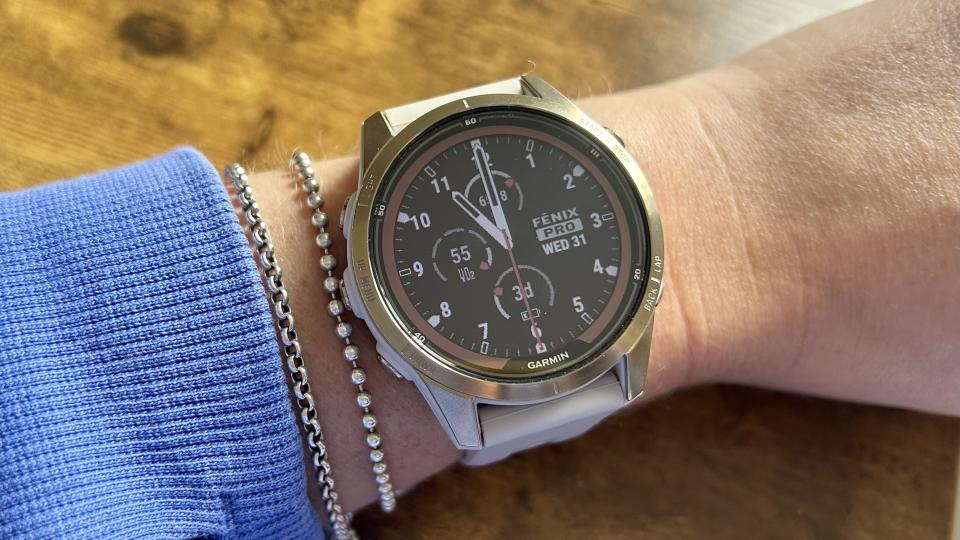
While the screen of the Fenix 7 Pro isn’t anywhere near as bright as the AMOLED screens we’ve seen Garmin release recently, it’s still easy to see in direct sunlight, and on dull grey days. Of course, the benefit of the MIP display is that it has solar charging capabilities, extending the already excellent battery life of the Garmin Fenix 7 Pro line. Here are all the key battery life stats:
I have had the Garmin Fenix 7S Pro on my wrist for a week, in smartwatch mode, recording at least three hours of activity per day, and am still on 27% charge. I could easily travel for a weekend marathon abroad with this watch, without worrying about packing a charger.
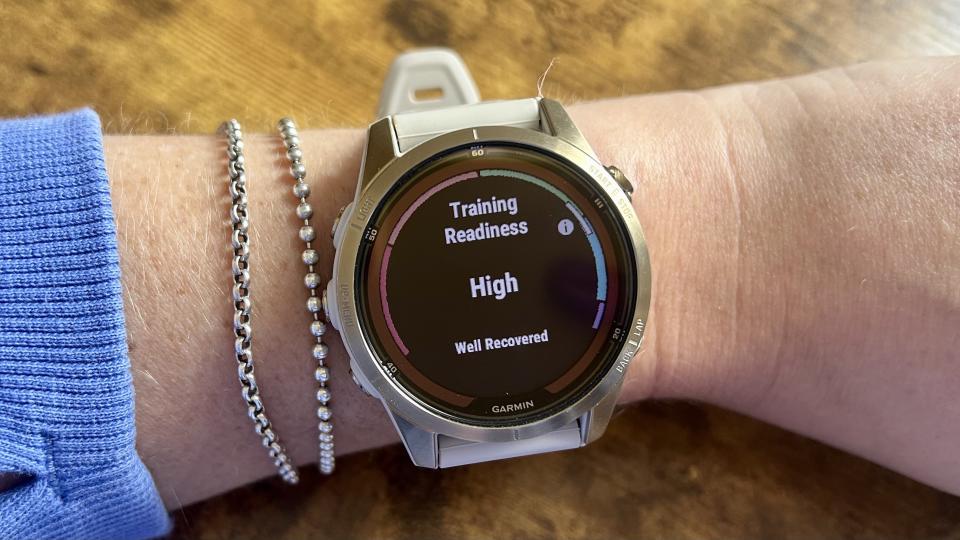
Finally, the Fenix 7 Pro looks beautiful on the wrist. Like many of the best smartwatches on the market, the Fenix 7 Pro is designed to be worn 24/7, and it ticks those boxes.
The responsive touchscreen makes it easy to scroll around the watch and check notifications on the move. And as a runner, I like that I can still use the physical buttons to navigate around the watch when I have sweaty fingers. Of course, like all of the best Garmins on the market, the Fenix 7 Pro line is still let down by the apps you can install on the watch. Where the best Apple Watch is like having an iPhone on your wrist, the Garmin Fenix 7 Pro still feels like a sports watch.
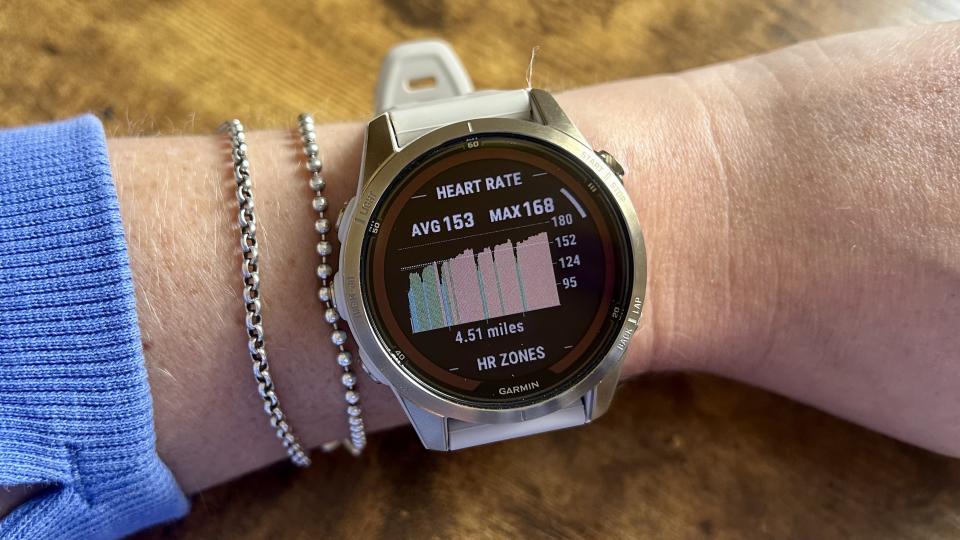
Garmin Fenix 7 Pro hands-on: Early verdict
I still have a lot more testing to do with the Garmin Fenix 7 Pro before I make my verdict, but after a week of testing I’m impressed with the added extras — I love the flashlight, and am looking forward to testing the new sensor, but I was hoping for a little more.
I still wonder why Garmin hasn’t added a skin temperature sensor to its high-end watches, which could enhance menstrual tracking and health data. But perhaps that's coming with the Garmin Fenix 8.
If you already have a Garmin Epix 2 or a Garmin Fenix 7S on your wrist, this one probably isn’t worth the upgrade. However, if you’re wearing an older Forerunner and you want the ultimate adventure watch, this is a good one. Who knows, it might even make you book that white water rafting trip…
